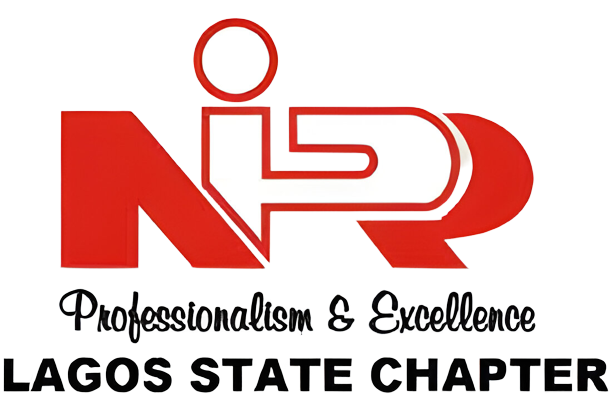Curiculum
Everything you need t know about membership
Curriculum
The professional Certificate in Public Relations programme is designed to develop well-rounded and skillful manpower that will function effectively in the Nigerian society. The programme grounds the students in the theoretical and practical dimensions of Public Relations in Nigeria as well as comparative exploration of public relations practices and methods globally. The programme is intended to graduate students who can earn a living on their own and who can affect the Public Relations/Public Affairs and Corporate Communications industry positively.
Objectives
The objectives of the professional certificate in Public Relations programme include:
- To train skillful public relations professionals who can work efficiently in public and private organisations;
- To produce middle level public relations professionals who are equipped with skills clearly relevant to work and intended to facilitate entry or progression in employment or higher education;
- To produce well rounded middle-level public and corporate communications manpower who can combine the communication and management roles of public relations to service public and private organisations

Admission Requirement
To qualify for admission, a candidate must possess any of the following qualifications:
- A recognized University degree or Diploma in social sciences, arts and humanities or any other relevant discipline.
- Professional Certificate / Diploma from institutions recognized by the Governing Council of the Nigerian Institute of Public Relations for this purpose.
- BEEC Foundation Examination in Public Relations with passes in five subjects.
- GCE “A” Level in at least two subjects provided credit in English has been obtained at “O” Level or WASC, or SSS III Examination.
- NCE/Grade II Teachers’ Certificate with at least five merits including English Language or its equivalent. (for this purpose, English Literature or General Paper is not a substitute for English Language)
- OND or HND
- Mature students with at least seven years of Public Relations experience.
- London Chambers of Commerce Higher Stage passes in two other subjects, which may be Public Relations.
- Candidates should have five credits at ‘O’ levels including English language and Mathematics.
NOTE: In special circumstances, consideration will be given to those with professional experience in public relations experience who may not meet some of the above requirements.
Exemption
Exemption on a subject basis may be granted in relevant papers, which applicants may have written in other examinations that are acceptable to the Council of the Nigerian Institute of Public Relations. This can be verified with the transcript that such applicant is mandated to submit.
Delivery Methods
The delivery mode for the Certificate in Public Relations programme shall be essentially through study packs to be purchased from the Institute and personal studies by the candidates. However candidates may, at their own cost, take advantage of facilities provided at NIPR accredited centres or schools to undergo special tutorials.
PROFESSIONAL CERTIFICATE IN PUBLIC RELATIONS
PART I
| COURSE CODE | COURSE TITLE | CREDIT LOAD | STATUS |
| GNS 101 | Basic Communication Skills | 2 | Compulsory |
| GNS 102 | Nigerian History & Citizenship Education | 2 | Compulsory |
| CPR 111 | Communication Theories | 2 | Compulsory |
| CPR 112 | Principles of Public Relations | 3 | Compulsory |
| CPR 113 | Principles of Psychology | 3 | Compulsory |
| CPR 114 | Writing for the Media | 3 | Compulsory |
| CPR 115 | PR Media and Methods | 3 | Compulsory |
| CPR 116 | Entrepreneurship skills for PR & Business Management | 3 | Compulsory |
| CPR 117 | Quantitative Methods | 3 | Required Elective |
| CPR 118 | Nigerian Cultural Studies & Intercultural Communication | 2 | Elective |
| CPR 119 | Computer Applications for PR | 2 | Elective |
| Total | 28 | ||
PART II
| COURSE CODE | COURSE TITLE | CREDIT LOAD | STATUS |
| CPR 211 | Economics | 2 | Compulsory |
| CPR 212 | PR for Government, Public Sector & Non-Profit Organizations | 3 | Compulsory |
| CPR 213 | Stakeholders Relations Management | 2 | Compulsory |
| CPR 214 | PR for Business & Industry | 3 | Compulsory |
| CPR 215 | Social Media for Public Relations | 2 | Compulsory |
| CPR 216 | Research & Evaluation in Public Relations | 3 | Compulsory |
| *CPR 217 | Protocols & Events Management | 3 | Compulsory |
| *CPR 218 | NIPR Laws and Public Relations Ethics | 2 | Elective |
| CPR 219 | Integrated Marketing Communications | 2 | Elective |
| Total | 22 | ||
Credit Load
Minimum of 16 Credit Units per diet (3 diets)
Maximum of 22 Credit Units per diet (2diets)
DPR PROGRAMME
The professional Diploma in Public Relations programme is designed to develop well-rounded and skillful management level manpower that will function effectively within the Nigerian society. The programme grounds the students in the theoretical and practical dimensions of Public Relations in Nigeria as well as comparative exploration of public relations practices and methods globally. The programme is intended to graduate students who can earn a living on their own and who can affect the public Affairs and corporate communications industry positively.
The professional Diploma in Public Relations curriculum is aimed at providing students with professional knowledge of the detailled demands made on Public Relations professionals in the different practice fields of Public Reltions. Among the areas graduates of the programme can function are:
- Crisis Communication Managers,
- Corporate Affairs Officers,
- Reputation Managers,
- Relationship Managers,
- Protocol Officers,
- Media Relations Officers,
- Corporate Communications Officers,
- Information officers, Science Communicators,
- Strategic Communication Officers, etc.
The overall goal is to equip the graduates with management level skills required to effectively discharge public relations functions in both public and private establishments. Thus, the programme shall equip students with core professional competences that will enable them master the following:
- the techniques, methods and application of public relations, strategic management, stakeholders’ relationship mapping, perception studies,
- communication research: quantitative and qualitative content analysis, survey research, experimental research, field and historical research;
- the diverse communication media available to public relations professionals in the planning and execution of public relations campaigns;
- the potentials of the mass media (print media, radio, television and film); new media and other tailor-made media as vital tools for Public Relations campaigns;
- methods of designing effective integrated marketing communications and change – communication messages
- evaluation of strategic communication programmes and audience survey;
- the nature, impact and power of public relations in management of organisations.
OBJECTIVES
The specific objectives of the professional Diploma in Public Relations programme include:
- To train skillful public relations professionals who can work efficiently in
public and private organisations;
- To produce professionals who are equipped with skills clearly relevant to
work and intended to facilitate entry or progression in employment or higher education
- To produce well rounded middle-level corporate communications manpower who can combine the communication and management roles of public relations to service public and private organisations
ADMISSION REQUIREMENTS
- To qualify for admission, a candidate must possess any of the following
- Professional Certificate in Public Relations (CPR) of the Nigerian Institute of Public Relations or its equivalent as recognized by the NIPR Council
- Holders of HND in Mass Communication, Communication Arts, Marketing or London CAM Certificate in Communication Studies
NOTE: In special circumstances, consideration may be given to those with professional experience in public relations who may not meet some of the above requirements.
EXEMPTION
Exemption on a subject basis may be granted in relevant papers, which applicants may have written in other examinations that are acceptable to the Council of the Nigerian Institute of Public Relations.
DELIVERY METHODS
The delivery mode for the Diploma in Public Relations programme shall be essentially through study packs to be purchased from the Institute and personal studies by the candidates. However candidates may, at their own cost, take advantage of facilities provided at NIPR accredited centres or schools to undergo special tutorials. Often, such accredited centres/schools utilise the following training modes:
- Lectures.
- Seminars; students would be required to present seminars for peer assessment. Some assignments might be submitted online.
- Workshops: The nature of some courses require intensive workshop type interaction where the students can work in-groups and plenary.
- Participatory Learning: this is a hands-on learning method, which encourages both the teacher and the student to enter into learning situations, exchanges and share experiences.
REVISED SYLLABUS FOR PROFESSIONAL DIPLOMA IN PUBLIC RELATIONS (DPR)
PART I
| COURSE CODE | COURSE TITLE | CREDIT LOAD | STATUS |
| DPR 311 | Public Relations in Strategies Management, Policy & Corporate Planning | 3 | Compulsory |
| DPR 312 | Corporate, Product and Service Brands Management | 3 | Compulsory |
| DPR 313 | Media Relations, Procurement and Performance Management | 3 | Compulsory |
| DPR 314 | Marketing & Advertising in Public Relations | 3 | Compulsory |
| DPR 315 | Strategic Communication and Crisis Management | 3 | Compulsory |
| DPR 316 | Research Methods for PR | 3 | Compulsory |
| DPR 317 | Public Relations Seminar | 3 | Required Elective |
| Total | 21 | ||
PART II
| COURSE CODE | COURSE TITLE | CREDIT LOAD | STATUS |
| DPR 411 | Financial Literacy | 3 | Compulsory |
| DPR 412 | Comparative PR Systems | 3 | Compulsory |
| DPR 413 | PR for International Organizations | 3 | Compulsory |
| DPR 414 | Evaluating PR Campaigns | 3 | Compulsory |
| DPR 415 | Special Project in Public Relations | 6 | Compulsory |
| Total | 18 | ||
Minimum of 14 Credit Units per diet (3 diets)
Maximum of 21 Credit Units per diet (2diets)

